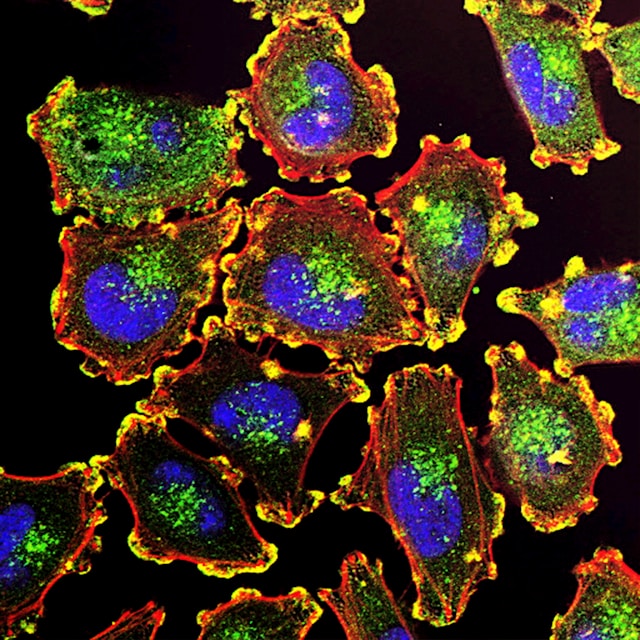Monoclonal Antibodies: Guided Missiles in the Battle Against Cancer and More

In 1907, Nobel laureate Paul Ehrlich theorised a ‘magic bullet’ (‘Zauberkugel’): a therapeutic agent that could target disease pathogens without harming healthy areas of the body at all. It monowas this hypothesis that spearheaded subsequent research into immunology and got drug developers striving for targeted therapies for conditions like cancer.
Since Ehrlich’s suggestion, there have been many therapies proposed to be magic bullets. Of them, monoclonal antibodies (mAbs) are perhaps the most promising and versatile treatments for indications like cancer.
RELATED:
- Antibody Therapies to Get Boost from Genmab and Argenx Partnership for Immunology and Oncology
- ABclonal’s Novel Single B-Cell Based Platform for Monoclonal Antibody Discovery
- Sensei Bio Presents Preclinical Data for Novel Antibody Therapeutic for Solid Tumours
Owing to their name, which basically means ‘single clones’, monoclonal antibodies are especially suited to the ‘magic bullet’ designation, as they bind to a single and specific epitope of a particular antigen. Therefore, monoclonal antibodies are very good at identifying specific proteins that are part of a harmful process in the body (like toxins, parts of bacteria, or parts of cancer cells).
There are many different therapeutic mechanisms that mAbs utilise to treat disease, some work by blocking immune signals, while others alert and activate the immune system to take care of a pathogen. In any case, the first step in developing antibodies as a therapeutic modality is to identify those antigens associated with harmful pathogens, for example, the HER2 receptor in breast cancer.
Here are three examples of monoclonal antibodies, and their immunotherapeutic mechanisms of action:
Immunosuppression
Rituximab is one such monoclonal antibody. It targets the CD20 receptor and is used to treat autoimmune conditions and some forms of B cell cancers. The target CD20 is a receptor found on B lymphocytes, when rituximab attaches to this receptor it flags those B cells to be killed by the rest of the immune system. As a result, the drug has an immunosuppressive effect, which is why it is used to treat autoimmune diseases.
Immune Checkpoint Inhibitors
Immune checkpoint inhibitors (ICIs) are monoclonal antibodies that are designed to target and block proteins called immune checkpoints. Immune checkpoints are made by immune cells and some cancer cells and are responsible for regulating the immune system so that immune cells don’t haphazardly attack healthy cells.
Although this pathway is effective in preventing autoimmunity, sometimes cancer cells can highjack this pathway by stimulating immune checkpoints, protecting themselves from the immune system. Therefore, ICIs such as pembrolizumab attach to and block these pathways, allowing the immune system to kill cancer cells. Common targets of these immunotherapies are CTLA-4, PD-1 and PD-L1, with eight inhibitors currently approved by the FDA (as of May 2023) and Many other targets are under investigation for ICIs.
Antibody-Drug Conjugates
Antibody-drug conjugates (ADC) are an effective way to deliver cell-killing payloads to cancerous cells, directly targeting and killing them. Herein, an ADC is a combination of a monoclonal antibody, a linker, and a cytotoxic agent. By targeting tumour cells directly, ADCs limit the nasty systemic side effects that occur with modalities like chemotherapy.
ADCs bind to the target antigen on the cell surface, these are antigens that mostly or only occur on the surface of cancer cells, to avoid targeting healthy cells. The stable linker between antibody and cytotoxic payload allows the therapy to circulate throughout the body without releasing the drug until it has reached its target.
Once the ADC attaches to a malignant cell, it becomes internalised and then gets degraded. This releases the cytotoxic agent, which kills the cell by sabotaging its internal machinery. There are a variety of ADCs approved by the FDA for use in many cancer types, with many more under investigation. This is a modality that holds great promise for targeted cancer treatment, and potential hope for cancer patients
See the upcoming events in Oxford Global’s Immuno series here.
Get your weekly dose of industry news?here?and keep up to date with the latest?‘Industry Spotlight’ posts.?For other Immuno content, please visit the?Immuno Content Portal.
.







